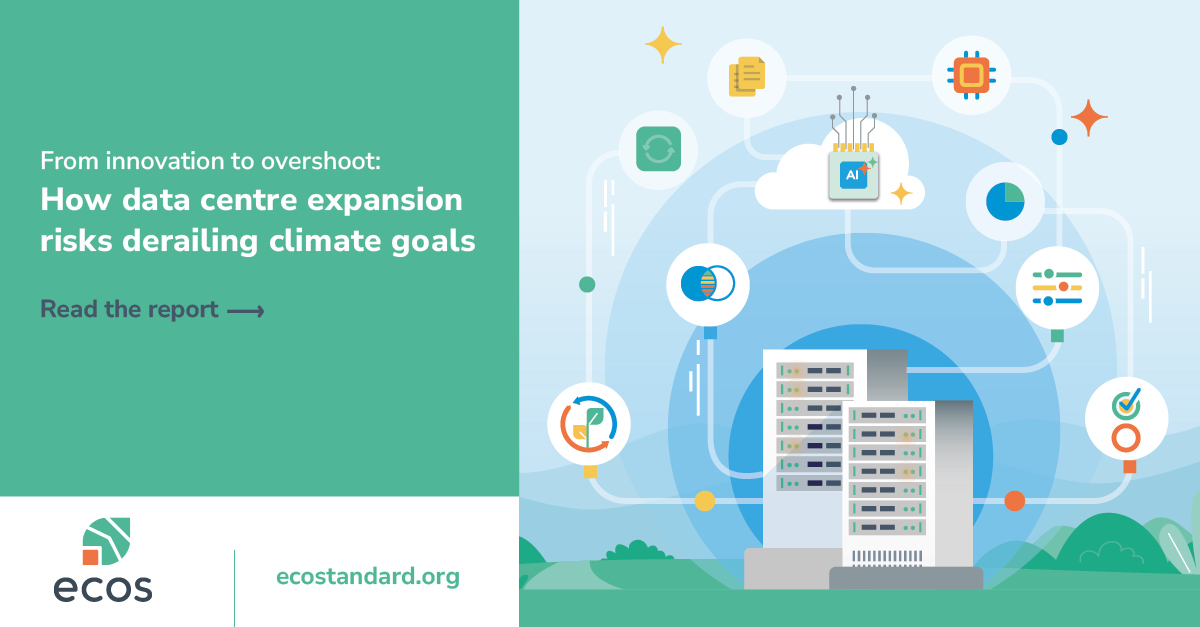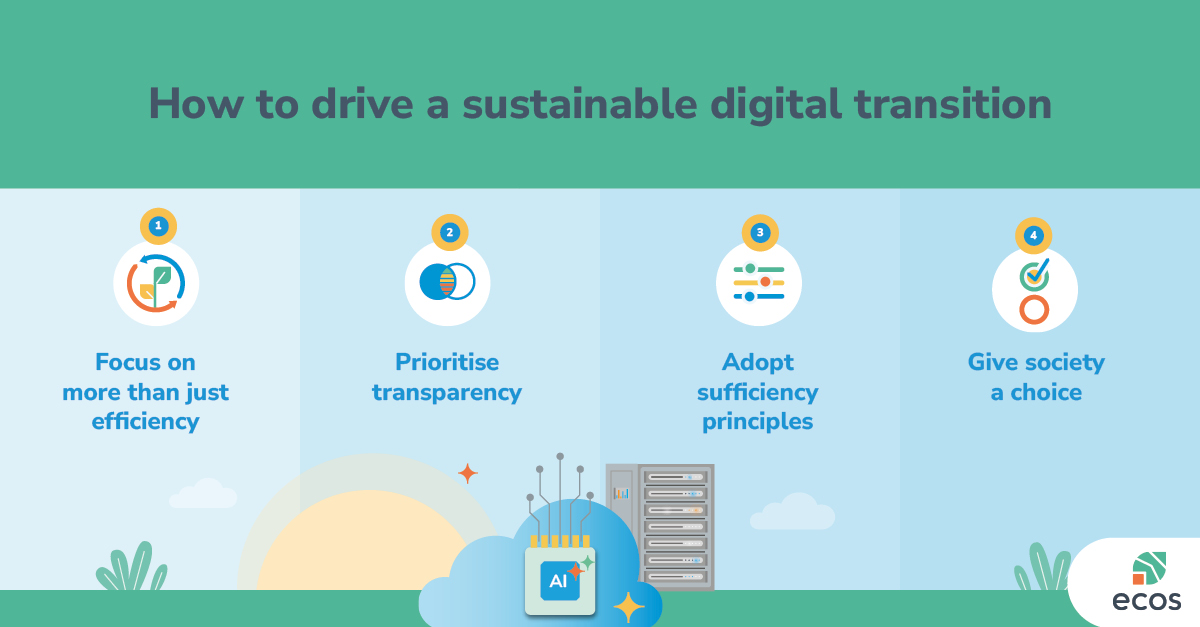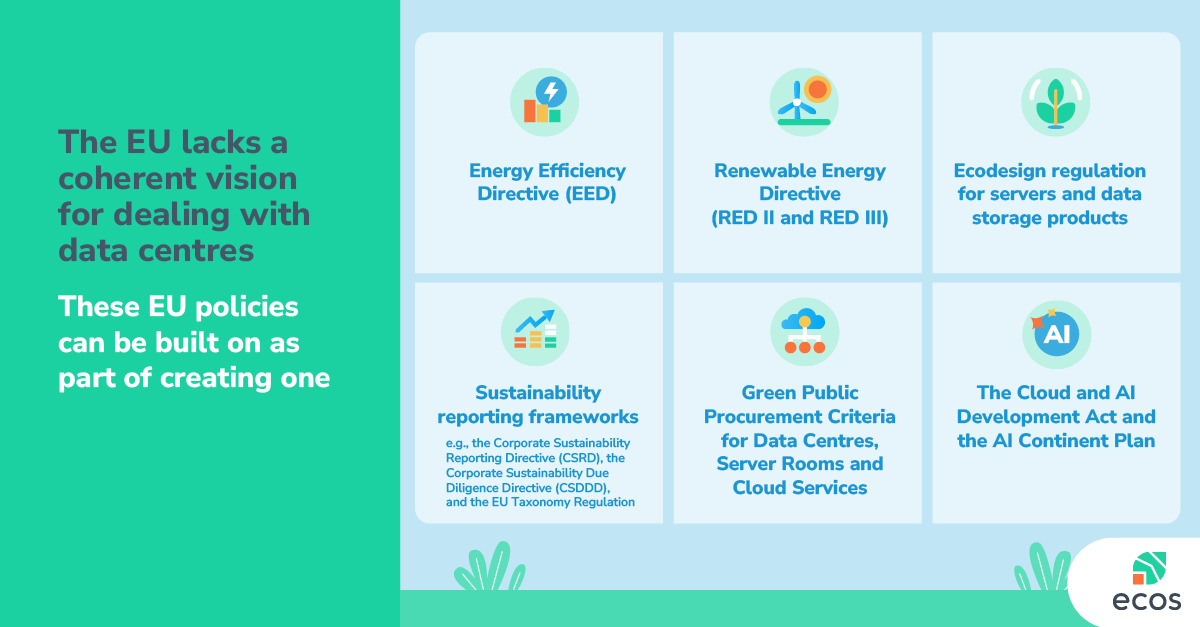Watch it again! The Environmental impacts of data centres
Webinar | How data centre expansion risks derailing climate goals - and how to fix it.

Watch the webinar
The increasing popularity of AI and other digital technologies is driving a boom in the need for data centres. AI is framed as a vehicle for progress, but its unchecked evolution also has a dark side: it risks undermining climate goals, destabilising energy systems, and deepening environmental and social inequalities.
Watch the webinar to hear more from:
- Anastasia Tsougka, ECOS
- Zuzanna Warso, Open Future
- Pauline Denis, The Shift Project
- Samuel Rincé, GenAI Impact
- Nikolaos Kontinakis, European Commission (DG ENER)
Download the webinar slides here.
Read the report
>> Download the accompanying report and infographic here <<
At the webinar, ECOS and Open Future launched a new report: From innovation to overshoot: How data centre expansion risks derailing climate goals. Here’s what it says:
The environmental impacts of data centres
- Data centres use a lot of energy – much of which still comes from fossil fuels.
- Emissions are high (and estimated to be 662% higher than what is publicly disclosed).
- Many materials are needed for data centres — from hardware and components to critical raw materials, land, electricity, and water. This affects the environment and local communities.
- Equipment quickly goes out of date, adding to the e-waste problem.
This undermines climate goals, destabilises energy systems, and deepens environmental and social inequalities.
What policymakers can do about it
Until now, efforts to make data centres more sustainable in the EU have prioritised efficiency — and while this is needed, it is not the only solution. We urgently need to go beyond efficiency and integrate sufficiency, circularity, and transparency principles into the foundations of digital infrastructure.
Data centres are essential infrastructure, but instead of allowing computational excess, we need laws that focus on more than just efficiency, prioritise transparency, and adopt principles of sufficiency – with society involved.

EU toolbox
The EU has already introduced some relevant regulatory tools, but without a clear, overarching vision for making data centres more sustainable, there’s still much work to be done. Here’s what EU policymakers can build on:



